AIR CONDITIONING 101: ALL YOU NEED TO KNOW ABOUT


FUN FACT:
You can reduce your energy consumption by up to 50% just by upgrading to high-efficiency air conditioners and taking action to lower your energy use.
QUICK TIP:
Start saving money right now by regularly cleaning and replacing your cooling system’s air filters.
HOW AIR CONDITIONERS WORK
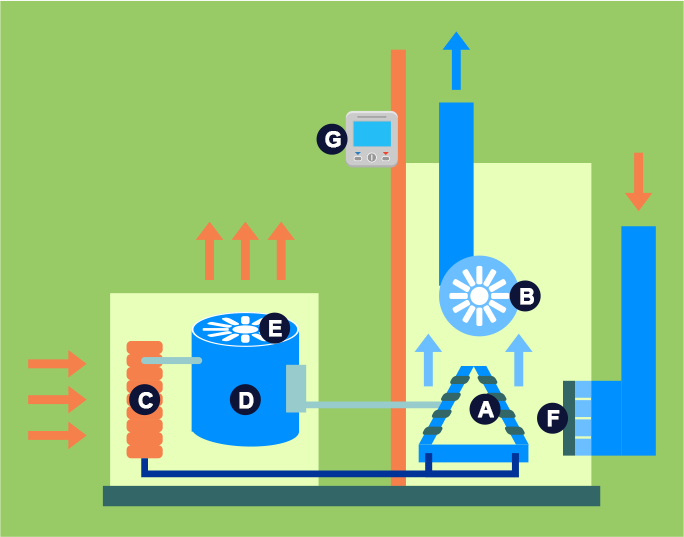
Evaporator – Cooling coils remove heat and humidity from the air.
Blower – Moves the now cooled air into the ducts.
Condenser – Hot coils disperse heat into the outside air.
Compressor – Moves refrigerant around the system to cool the air.
Fan – Blows air over the condenser to disperse hot air.
Filter – Removes particles and allergens from the air.
Thermostat – Controls your entire AC system telling it when to heat or cool.
TYPES OF AIR CONDITIONERS

Central Air
Life Span: 15-20 Years
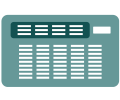
Room Unit
Life Span: 10-15 Years

Ductless, Mini- Split Life Span: 12-15 Years
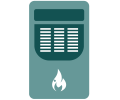
Evaporative Cooler Life Span: 15-20 Years
Provides even cooling throughout the home and a great option if you already have ductwork.
Affordable and a great option if your home doesn’t already have an AC unit.
Highly efficient, provide heating and cooling, and work in all climates.
Great option for arid climates and a cost effective option to cool the home.
Quiet, easy to operate and more efficient than a room unit.
Inexpensive to operate and efficient in cooling single rooms.
Cheaper than central air and easy to install. Can also be installed in buildings that don’t allow central air.
Half the price of central air to install and is 25% more efficient.
Can be expensive timely to install if you do not have ductwork already.
Improper installation leads to air loss and can reduce its efficiency by 10%.
Not a cost effective option if your home already contains ductwork.
Requires frequent maintenance and only recommended for low humidity areas.
Make sure all duct work is sealed and insulated for higher efficiency.
Use rigid form panels and duct tape to effectively install the unit and stop air leaks.
Keep the outdoor unit clean and free of debris to maintain high efficiency.
Regularly clean and drain your unit to ensure a long life and maintain efficiency.
FUN FACT:
Excess humidity in the air keeps our bodies from naturally cooling themselves.
Air conditions remove excess moisture from the air allowing us to better regulate our body temperature.
VENT YOUR SPACE
PROPER VENTILATION IS THE MOST COST EFFECTIVE WAY TO COOL A HOME.
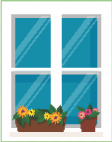
Opening windows creates a cross breeze that naturally moves warm air out of the home.
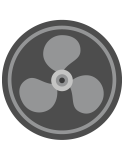
Fans circulate air throughout a room to create a wind chill effect and keep air from feeling stagnant.
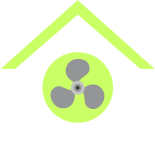
Whole house fans pul in air from outside and expel indoor heat into the home’s attic.
How to Maintain Your AC
Regular maintenance saves you money in the long run by prolonging the life of your unit and avoiding costly repair bills.
Replace or clean your air filters regularly. Clean air filters reduce energy costs by 5-15%.
Check the evaporator coils every year and clean them if necessary shut down your system before cleaning.
Bent coil fins can lead to costly repairs an inefficient operation. You can straighten them with a “fin comb”.
Clean debris, and leaves from the fan on any outdoor unit to keep things running smoothly and efficiently.
Cleaning out drainage lines and panels regularly stops unintentional water damage.
Inspect window seals regularly on window units to keep air from escaping.
Always hire a professional if you’re not sure what to do or hear and see odd things.
COMMON AC PROBLEMS – AND HOW TO SOLVE THEM
THE UNIT ISN’T COOLING PROPERLY

REFRIGERANT
Check refrigerant levels and look for leaks. Call a professional for repair.

SENSOR PROBLEMS
In a window unit, the thermostat sensor could be misaligned

THERMOSTAT ISSUES
Compare your thermostat reading to other rooms in the house and adjust accordingly.
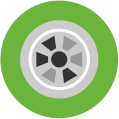
DRAINAGE PROBLEMS
Make sure the drain is not clogged. Clean it if necessary.
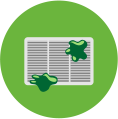
DIRTY FILTER
Dirty filters restrict airflow and stress the entire system. Change air filters regularly.
YOUR UNIT ISN’T TURNING ON
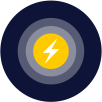
ELECTRIC FAILURE
Check the circuit breaker first. If resetting the circuit doesn’t solve the issue, contact a professional.

THERMOSTAT
If your thermostat isn’t working, it may just need new batteries.
LIMITED AIRFLOW

DUCTWORK PROBLEMS
If your ducts look dirty or you notice restricted airflow, Call a professional to schedule service.
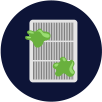
DIRTY FILTER
Dirty filters restrict airflow and stress the entire system. Change air filters regularly.
![]()
MONEY SAVING TIPS:
![]()
Install a programmable thermostat to save up to 10% on your monthly bill.
Using ceiling fans with your AC running allows you to raise the thermostat by 4 degrees.
Insulate your attic and walls and reseal your doors and windows to keep air from escaping.
Insulating and sealing your ductwork reduces air loss by 30%
On super hot days, try not to use your appliances, cook outside and run dishwashers and dryers at night.
Install energy-efficient blinds that block heat from entering your home.
ENERGY STAR AC units conserve energy by 15% on average, saving you money in the long run.
Always use fans when showering or cooking to remove humidity and heat from your home.



